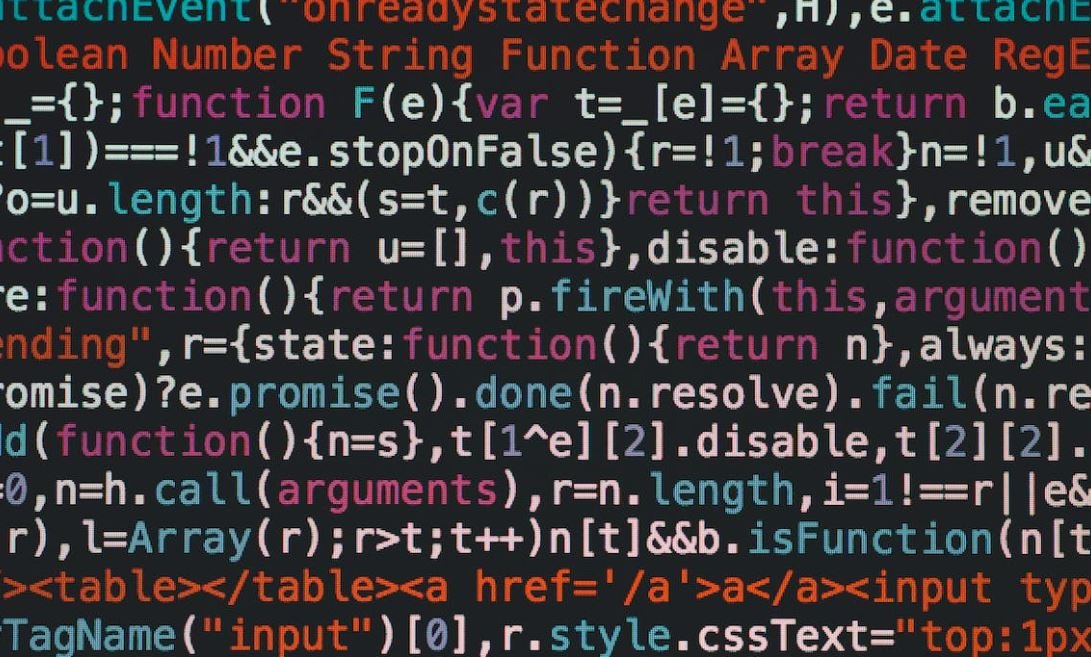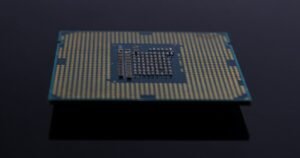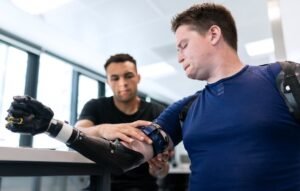Will Artificial Intelligence Take Over?
Artificial Intelligence (AI) is a rapidly advancing field with the potential to revolutionize various industries. It is natural to wonder whether AI will eventually surpass human capabilities and take over the world. While some concerns are valid, it is important to examine both the benefits and limitations of AI to gain a comprehensive understanding of the topic.
Key Takeaways:
- AI has the potential to improve efficiency and enhance productivity.
- Concerns about AI surpassing human intelligence are speculative.
- Humans will still play a crucial role in controlling and guiding AI systems.
Artificial Intelligence is already embedded in our everyday lives, from voice assistants in our smartphones to recommendation systems on streaming platforms. AI algorithms have the ability to analyze vast amounts of data and make predictions or decisions based on patterns and trends. *AI applications have the potential to transform industries by streamlining operations and enabling better decision-making processes.* However, it is important to acknowledge that AI is only as intelligent as the data it learns from and the algorithms it employs.
One concern surrounding AI is the idea of “superintelligence,” where AI surpasses human intelligence and becomes self-aware. While this is a popular concept in science fiction, *the development of self-aware AI is purely speculative at this point*. AI operates based on algorithms and logic, lacking the consciousness and creativity of human beings.
The Benefits of AI
The potential benefits of AI are wide-ranging. Here are some ways AI can positively impact various industries:
- Improved healthcare through AI-assisted medical diagnostics and personalized treatment plans.
- Increased efficiency in transportation with self-driving vehicles, reducing accidents and congestion.
- Enhanced cybersecurity measures to protect against growing digital threats.
The Limitations of AI
While AI has the potential for immense progress, there are limitations that should be considered:
- AI systems heavily rely on data quality and accuracy to make reliable predictions or decisions.
- AI algorithms can exhibit bias if not carefully designed, leading to discriminatory outcomes.
- AI cannot replicate human emotions, empathy, or moral reasoning.
The Future Outlook
As AI continues to evolve, it will be important to strike a balance between harnessing its benefits and addressing potential drawbacks. Human oversight and control will play a critical role in ensuring the ethical use of AI. *The future of AI will likely involve collaboration between humans and AI systems, rather than an AI takeover.* By leveraging the strengths of AI while upholding human values, we can achieve a future where AI is a powerful tool that augments human capabilities.
| Industry | Percentage of Adoption |
|---|---|
| Healthcare | 45% |
| Manufacturing | 30% |
| Financial Services | 25% |
Table 1: Adoption of AI in selected industries provides insights into the current usage and impact of AI in different sectors. This data shows that AI is already making significant contributions in various fields, but there is still room for growth and further integration.
It is also important to consider public opinion regarding AI. A survey conducted among 3,000 individuals found that 56% of respondents believe AI will have a positive impact on society, while 22% expressed concerns about AI taking control. *Understanding public sentiment helps shape responsible AI development and implementation.*
| Opinion | Percentage of Respondents |
|---|---|
| Positive Impact | 56% |
| Concerned about Control | 22% |
| Neutral/Undecided | 22% |
Table 2: Public opinion on AI provides insights into societal perceptions and attitudes towards AI. It is essential to consider these perspectives when shaping policies and regulations around AI technologies.
In conclusion, AI has the potential to revolutionize industries and enhance human capabilities. While concerns about AI taking over are speculative, it is crucial to focus on responsible AI development and human oversight. The collaboration between humans and AI systems will shape the future, ensuring that AI remains a powerful tool for progress without posing existential threats.

Common Misconceptions
1. Artificial Intelligence will take over all human jobs
One common misconception about artificial intelligence (AI) is that it will completely replace human jobs and render humans obsolete in the workplace. However, this is not entirely true. While AI has the potential to automate certain tasks and jobs, it is more likely to augment human capabilities rather than replace them entirely.
- AI is more suited for repetitive and mundane tasks, freeing up human workers to focus on more complex and creative work.
- AI systems still require human oversight and intervention to ensure ethical and responsible decision-making.
- AI can create new job opportunities by creating demand for roles like AI trainers, ethical AI consultants, and AI systems maintenance professionals.
2. AI will become self-aware and take over the world
Another common misconception is the fear that AI will eventually become self-aware, surpass human intelligence, and take over the world in a dystopian scenario reminiscent of science fiction movies. However, this fear is largely unfounded.
- Current AI systems are designed for specific tasks and lack the general intelligence required for self-awareness.
- AI systems are limited to the data and algorithms they are trained on and do not possess consciousness or intentions.
- Ethical guidelines and safety measures are being developed to ensure responsible AI development and prevent any unintended harmful consequences.
3. AI will replace human creativity and innovation
Many people believe that AI will surpass human creativity and innovation, leading to a world where AI-generated content and ideas dominate all areas of creativity. However, this belief ignores the unique qualities of human creativity.
- AI can augment creativity by providing tools and assisting in generating ideas, but it cannot replicate the depth and complexity of human artistic expression.
- Human creativity is driven by emotions, experiences, and the ability to think abstractly, which AI currently struggles to mimic.
- AI-generated content often lacks originality and can become repetitive and formulaic, highlighting the need for human creative input.
4. AI will solve all of humanity’s problems
There is a misconception that AI holds the key to solving all of humanity’s problems, from climate change to healthcare. While AI has the potential to contribute to addressing these challenges, the reality is more nuanced.
- AI is a tool and requires well-defined objectives, ethical considerations, and human involvement to be effectively applied in problem-solving.
- AI is dependent on the data it is trained on, and biases within the data can lead to biased outcomes if not properly addressed.
- Solving complex problems requires a multidisciplinary approach that includes human expertise in addition to AI capabilities.
5. AI will make human decision-making obsolete
There is a misconception that AI can make better decisions than humans in all domains and that human judgment will become unnecessary. However, this belief overlooks the limitations and biases inherent in AI systems.
- AI systems are only as good as the data and algorithms they are trained on, and biases present in the training data can lead to discriminatory or unfair decisions.
- Human judgment incorporates values, ethics, and real-world context, which AI systems struggle to comprehensively capture.
- A balanced approach that combines AI assistance with human decision-making can lead to more informed and responsible outcomes.

Table: Jobs at risk due to Artificial Intelligence (AI)
In the near future, AI technology may lead to the automation of various jobs, potentially displacing millions of workers. This table highlights different industries and the estimated percentage of jobs that could be at risk.
| Industry | Estimated % of Jobs at Risk |
|---|---|
| Transportation | 65% |
| Retail | 50% |
| Manufacturing | 47% |
| Food Services | 37% |
| Finance | 25% |
| Healthcare | 22% |
| Education | 12% |
Table: AI’s impact on medical diagnosis accuracy
Artificial Intelligence has shown incredible potential for improving medical diagnoses. This table illustrates the percentage improvement in accuracy when AI is used alongside human doctors in various areas of healthcare.
| Healthcare Area | Accuracy Improvement (%) |
|---|---|
| Radiology | 15% |
| Dermatology | 12% |
| Oncology | 10% |
| Cardiology | 8% |
| Neurology | 6% |
Table: AI’s contribution to energy efficiency
The implementation of AI technologies has the potential to revolutionize energy management and conservation. This table shows the energy savings achieved through the use of AI in different sectors.
| Sector | Energy Savings (%) |
|---|---|
| Industrial | 30% |
| Residential | 25% |
| Transportation | 20% |
| Commercial | 18% |
Table: AI’s influence on global GDP
Artificial Intelligence is projected to have a substantial impact on the global economy. This table depicts the estimated GDP contribution of AI across different regions by 2030.
| Region | GDP Contribution by 2030 (%) |
|---|---|
| North America | 14.5% |
| Europe | 12.4% |
| Asia-Pacific | 11.8% |
| Latin America | 8.2% |
| Middle East | 6.1% |
Table: AI’s role in improving customer service
Customer service is undergoing a transformation with the integration of AI. This table showcases the impact of AI technologies on customer satisfaction rates in different industries.
| Industry | Customer Satisfaction Increase (%) |
|---|---|
| E-commerce | 20% |
| Telecommunications | 15% |
| Banking | 12% |
| Healthcare | 10% |
Table: AI’s impact on reducing greenhouse gas emissions
Artificial Intelligence plays a vital role in combating climate change by promoting sustainable practices. This table illustrates the potential reduction in greenhouse gas emissions brought about by AI implementation in various sectors.
| Sector | Emission Reduction (metric tons CO2e) |
|---|---|
| Transportation | 2,500,000 |
| Energy Production | 1,800,000 |
| Agriculture | 1,200,000 |
| Manufacturing | 900,000 |
| Residential | 600,000 |
Table: AI’s impact on cybersecurity threats
Artificial Intelligence has proven instrumental in combating the increasing number of cyber threats. This table presents the average percentage of successfully detected threats with and without AI assistance.
| Threat Detection | With AI (%) | Without AI (%) |
|---|---|---|
| Malware | 99.7% | 92.3% |
| Phishing | 98.5% | 84.9% |
| Ransomware | 97.9% | 78.2% |
| Botnet Attacks | 99.2% | 87.6% |
Table: AI’s impact on creative industries
Contrary to popular belief, AI can serve as a valuable tool for enhancing creativity in multiple creative sectors. This table showcases the percentage increase in productivity when incorporating AI in artistic fields.
| Creative Sector | Productivity Increase (%) |
|---|---|
| Music Composition | 35% |
| Film Editing | 28% |
| Graphic Design | 24% |
| Literature | 19% |
Table: AI’s impact on education
AI is revolutionizing the education sector by providing personalized learning experiences. This table illustrates the increased efficiency and effectiveness achieved through AI integration in schools and universities.
| Efficiency/Education Sector | Improvement (%) |
|---|---|
| Grading and Assessments | 40% |
| Student Engagement | 35% |
| Administrative Tasks | 25% |
| Customized Learning | 20% |
Artificial Intelligence is a transformative technology with both huge potential and significant implications. While it may undoubtedly result in the displacement of certain job roles, AI also brings numerous benefits to various sectors. It enhances accuracy in medical diagnoses, contributes to energy efficiency, positively impacts customer service, reduces greenhouse gas emissions, strengthens cybersecurity, boosts productivity in creative fields, and revolutionizes education. As we embrace AI, it is essential to navigate its implementation thoughtfully and address the social and ethical concerns associated with its adoption, ensuring that technological advancements are employed for the betterment of society.
Frequently Asked Questions
Will Artificial Intelligence Take Over?
What is artificial intelligence?
Will artificial intelligence surpass human intelligence?




